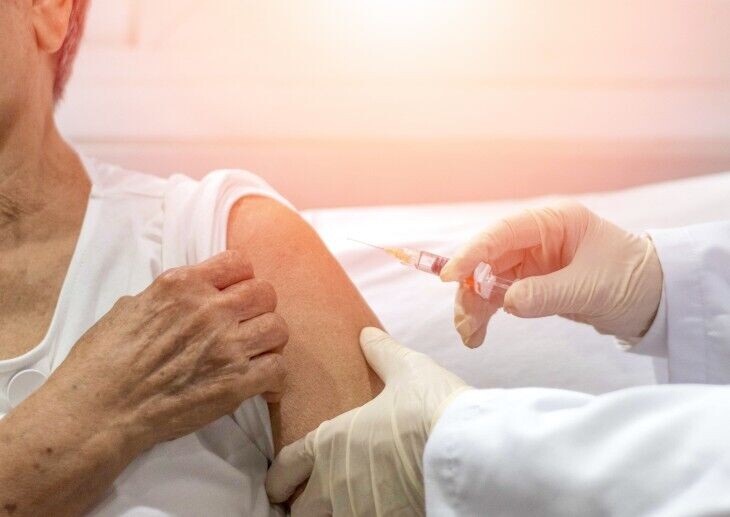New radiotherapy machines that will deliver up to 27,500 additional treatments per year are being rolled out across England.
The government has paid for linear accelerator (LINAC) machines, which will be rolled out at 28 hospitals from August (see box).
Replacing older machines will save as many as 13,000 appointments from being lost to equipment breakdown.
The upgraded tech can cut the rounds of radiotherapy needed and, in some cases, halve the number of hospital visits a patient needs to make.
By March 2027, up to 27,500 additional treatments per year will be delivered, including up to 4,500 receiving their first treatment for cancer within 62 days of referral.
Equipped with cutting-edge technology, LINAC machines are safer for patients and can more precisely target tumours, causing less damage to surrounding healthy tissues. The new radiotherapy machines are particularly effective at targeting cancers in harder to treat areas, such as the chest, abdomen and pelvis.
Health and social care secretary, Wes Streeting, said there was ‘a revolution taking place in medical technology which can transform treatment for cancer patients’.
‘By reducing the number of hospital visits required and preventing cancelled appointments, these state-of-the-art radiotherapy machines free up capacity so that thousands more patients are treated on time,’ he said.
The new radiotherapy machines were allocated across England by specialised commissioning teams at NHS England.
The tech is being prioritised in hospitals which are currently using outdated treatment machines older than 10 years.
It will also increase the availability of Stereotactic Ablative Radiotherapy (SABR) cancer treatments, which can more precisely target tumours.
Kate Seymour, head of external affairs at Macmillan Cancer Support said the new machines marked ‘an exciting step forward for cancer treatment in England’.
‘Investment in cutting-edge technology is essential to bring down waiting times and help more people with cancer get the best care the UK has to offer, whoever and wherever they are,’ she said.
The machines are funded as part of the government’s £70 million investment to improve cancer care through the Plan for Change.
The 28 trusts receiving an upgraded scanner are:
|
Mid and South Essex NHS Foundation Trust |
|
Sheffield Teaching Hospitals NHS Foundation Trust |
|
Northampton General Hospital NHS Trust |
|
United Lincolnshire Hospitals NHS Trust |
|
University Hospitals Plymouth NHS Trust |
|
Royal Free London NHS Foundation Trust |
|
Cambridge University Hospitals NHS Foundation Trust |
|
Hampshire Hospitals NHS Foundation Trust |
|
The Royal Marsden NHS Foundation Trust |
|
Worcestershire Acute Hospitals NHS Trust |
|
Lancashire Teaching Hospitals NHS Foundation Trust |
|
The Newcastle Upon Tyne Hospitals NHS Foundation Trust |
|
East Suffolk and North Essex NHS Foundation Trust |
|
Royal Berkshire NHS Foundation Trust |
|
Imperial College Healthcare NHS Trust |
|
Maidstone and Tunbridge Wells NHS Trust |
|
University Hospitals Bristol and Weston NHS Foundation Trust |
|
South Tees Hospitals NHS Foundation Trust |
|
The Christie NHS Foundation Trust |
|
Gloucestershire Hospitals NHS Foundation Trust |
|
Nottingham University Hospitals NHS Trust |
|
Royal Cornwall Hospitals NHS Trust |
|
The Clatterbridge Cancer Centre NHS Foundation Trust |
|
University Hospitals of Derby and Burton NHS Foundation Trust |
|
Guy’s and St Thomas’ NHS Foundation Trust |
|
University College London Hospitals NHS Foundation Trust |
|
Barts Health NHS Trust |
|
Royal Surrey NHS Foundation Trust |
Source: Department of Health and Social Care




